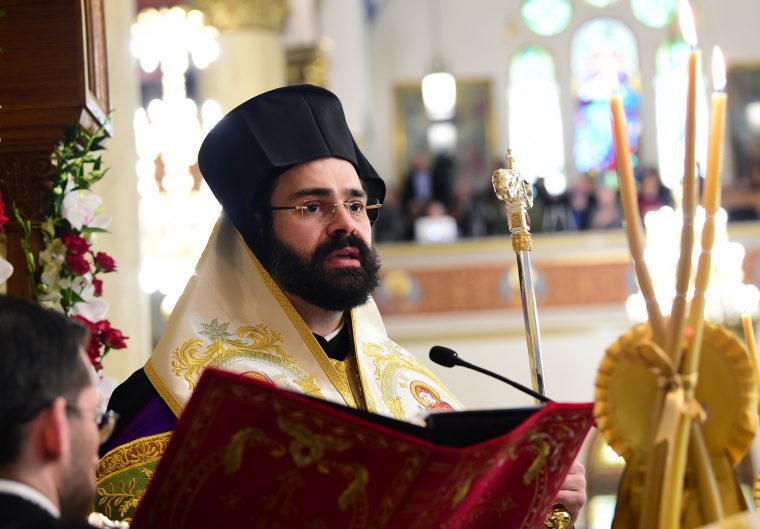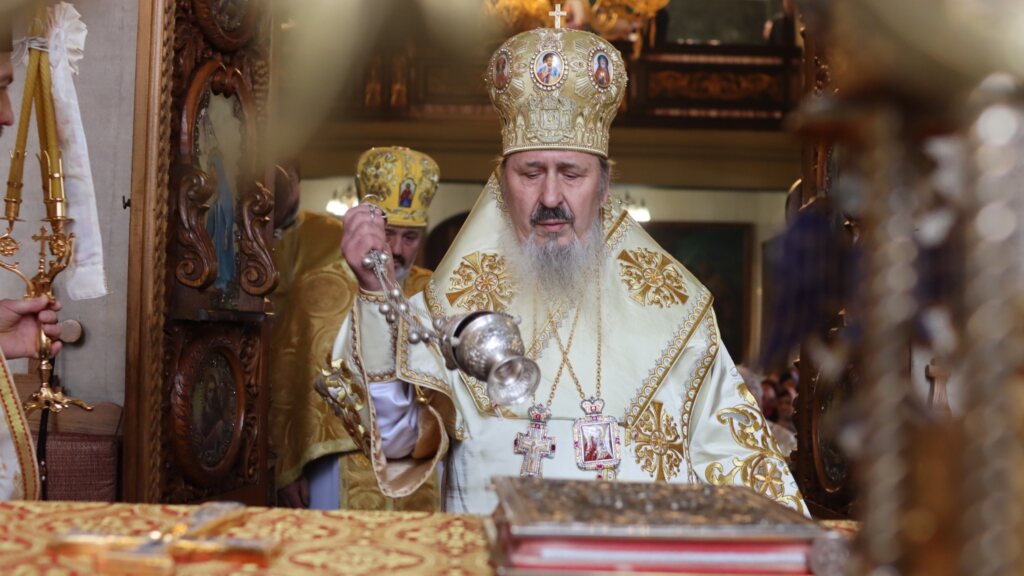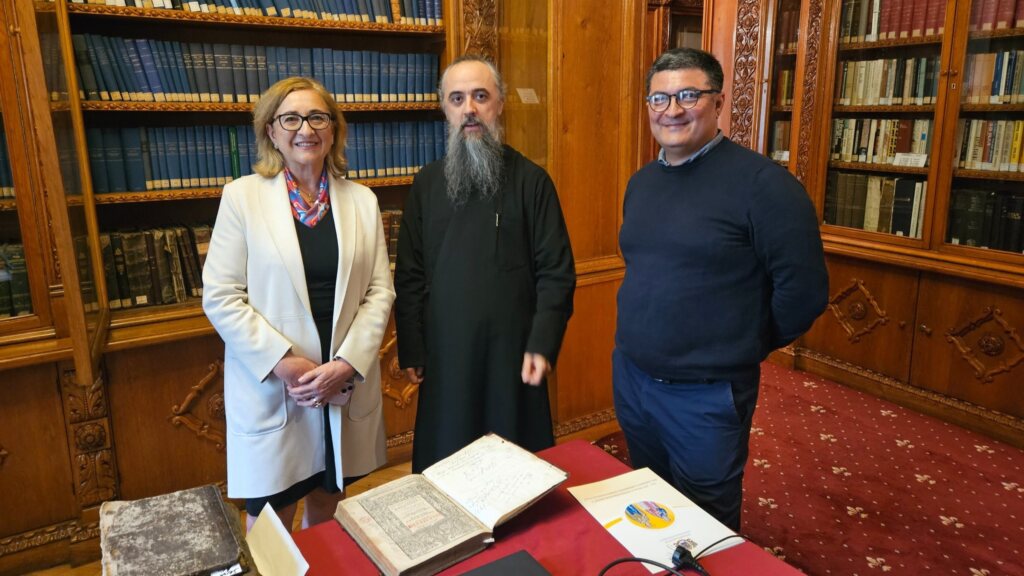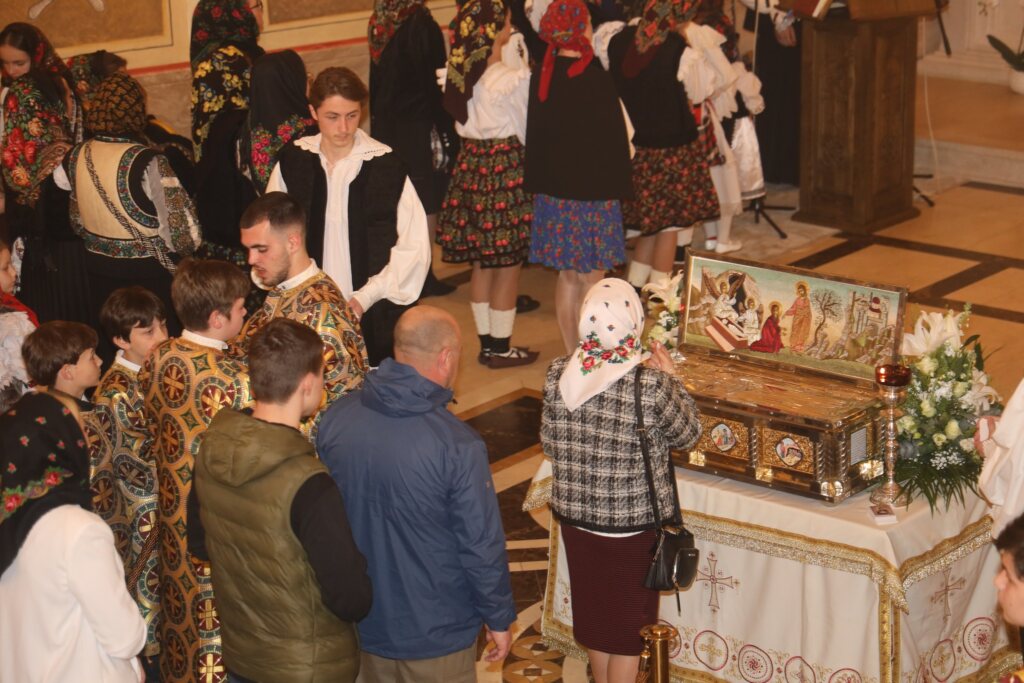Metropolitan Nathanael of Chicago called for becoming doers of mercy to guide individual lifestyles, blending a biting critique of the tendency to interpret the mercy of God in extreme ways with a plea for pursuing mercy as a way of life to be authentically human.
The vision that Metropolitan Nathanael outlined in a 13-page archpastoral encyclical is inspiring in a ‘mercy-starved’ society where a spirit of vengeance and vindictiveness saturates the air we breathe, poisoning relationships in our cities, our workplaces, and our families.
He describes mercy as action and ‘more than a passive feeling evoked by people in unhappy circumstances.’
Nathanael used his encyclical – titled ‘On Mercy’ – to highlight the acute need for imitating God who is merciful to find a source of ultimate hope and a way of engaging with others that can move us beyond divisions, prejudice, animosity and the status quo.
He places most of the blame on existing social structures that often eclipse people’s experience of mercy and further weaken our capacity for offering it.
The Greek Orthodox Metropolis of Chicago released the encyclical on September 1, the beginning of the ecclesiastical new year, and it inaugurates a series of eight such circular letters based on divine gifts that will be released every year.
Metr. Nathanael made it clear that he hopes the encyclical will encourage believers to explore the theme of mercy in family life, youth and young adult programs, evangelism ministries, religious education and Bible studies, retreats, camps, and sermons.
Believers and clergy are expected to explore the theme of God’s mercy, which will strengthen their relationship with God and neighbour, deepen their understanding of God’s gifts, and practice faith more fully amidst the challenges and opportunities of daily life.
The encyclical is seen as un unsubtle nudge for action, because ‘as a counterpart to justice, mercy likewise entails that a person refrain from certain deeds (e.g. taking revenge, demanding restitution) and perform others (e.g., providing for needs, addressing problems).’
‘We typically speak of “having mercy,” but perhaps it would more appropriate to say, “doing mercy”,’ he writes.
Metropolitan Nathanael tapped a wide variety of biblical and liturgical sources in his encyclical, partly to underscore the importance of his message. He cites passages from the St John Chrysostom, St Isaac the Syrian and St Porphyrios of Kavsokalyvia, and lists the names of six Saints who bore witness in a personal manner to mercy as a ‘way of life.’
The Greek Metropolitan begins his encyclical with a petition found in the Fervent Litany hoping that each year he will reflect upon one of the eight divine gifts referenced in this prayer: ‘Further we pray for mercy, life, peace, health, salvation, visitation, forgiveness and remission of the sins of the servants of God…’
‘Put simply, mercy is foundational to our understanding of God, of prayer, and of our lives as Orthodox Christians,’ he writes.
He reflects on the etymology of the Greek and Hebrew terms used to designate mercy, and stresses that the Bible presents mercy under two main conceptions: (1) a feeling evoked by the neediness of another, and (2) an unconditional resolve to keep one’s promises, regardless of the outcome or recompense or even the worthiness of the other party.
He points to several manifestations of God’s mercy including the act of creation itself, divine providence for all creation, respecting human freedom, and the willingness to relate to us in a way that goes beyond justice and that rejects vindictiveness.
‘God’s mercy surpasses justice,’ His Eminence stresses. However, one must keep in mind that ‘His mercy extends, completes, and perfects His justice.’
He chastises the tendency to interpret the mercy of God in extreme ways, noting that ‘clergy play a vital role in consoling those who believe they are beyond God’s loving mercy and also in encouraging those who are suffering in this way to work with compassionate healthcare professionals.’
He also rebukes the spiritually dangerous tendency of ‘thinking that God’s mercy is so great and so generous that we need not do anything or be at all concerned about our salvation.’
He tackles the way mercy can be practiced in our homes, parishes, workplaces and neighbourhoods. ‘Our “mercy muscles” are strained more by our siblings, our spouses, our parents, and our children than by anyone else in our lives. Therefore, like charity, let mercy begin at home.’
Nathanael advocates faithfulness, honesty, application of church canons and customs, almsgiving and philanthropy, and criticises gossip and slander as hallmarks of mercy in the parishes.
‘If we genuinely desire to do mercy,’ he writes, ‘let us reach out also to those peers in school, to our coworkers, to our fellow parishioners, and to our neighbors who are experiencing the pain of loneliness.’
‘Mercy is the path to theosis,’ concludes Metropolitan Nathanael, urging once again everyone ‘to live as doers of mercy.’
© GANP/DIMITRIOS PANAGOS






